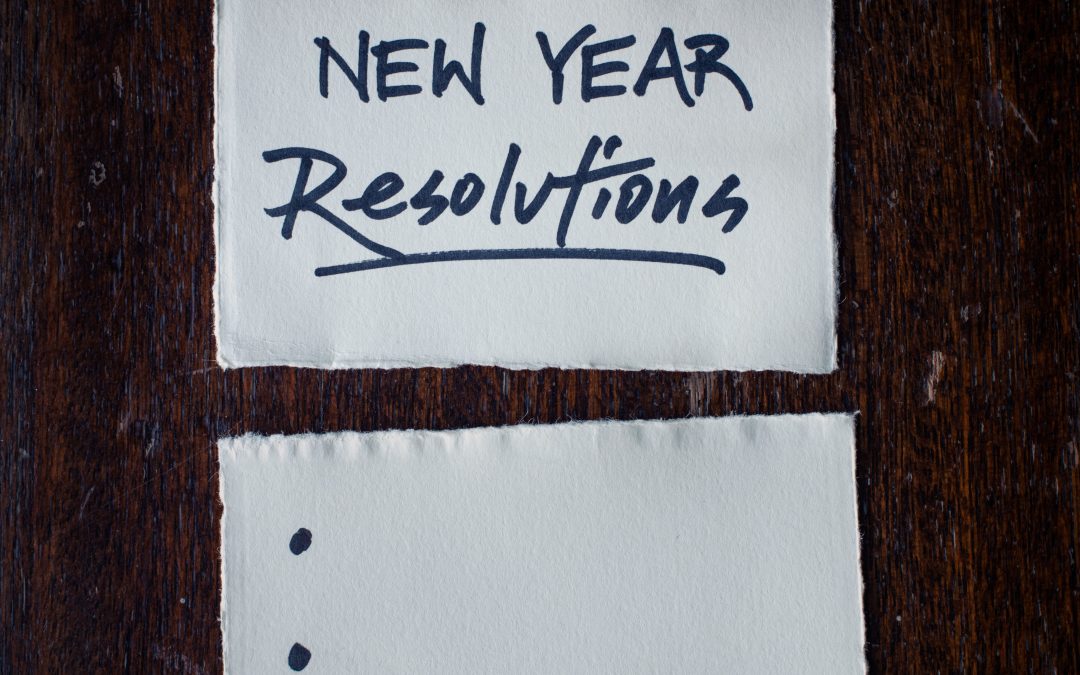Happy New Year! Time for a new you!
Many people use the new year as an opportunity for growth and resolutions. Many are able to sustain their goals for a week, maybe two. The majority fall apart by February. Resolutions are basically goal setting. In our previous post, we discussed attributes of good goal setting, but what are some of the most common mistakes? How should you go about fixing them? In no particular order…
Making goals too vague – as discussed before, write specific goals. Usually our resolutions are grand, broad statements. For example, “I want to be a nicer person,” or “I want to be healthy.” This sounds good until you try it. How are you going to be this nicer person? Solution? Right next to those resolutions you make a specific list on how to achieve it. This list is so clearly defined that a stranger could follow it. For example, next to the statement “I am going to be a nicer person,” you write “by giving one compliment per day, pausing to listen when a friend needs help, and holding the door as I walk through.” Or, “I’m going to have better study habits” is followed by “creating and following a schedule, studying at 10 am every day, etc.”
Not thinking realistically – Similar to before, “I’m going to learn anatomy today” is quite the statement. Excellent at anatomy in a day? To help, look at previous study habits and schedules. They can serve as an example of what you are capable of. This is a critical time in your life for studying, how can you stretch that schedule to challenge yourself but keep it doable?
Not chunking your goals – Break it up! That anatomy isn’t happening in a day. How about splitting it into topics covered over a certain number of pages? Breaking it up by body parts? Following the breaks and content outline of B&B? We take bites of food because trying to swallow all of it at once will cause you to choke!
Not setting a deadline – If you don’t set deadlines you become comfortable with procrastination. When you become comfortable with procrastinating it becomes a habit and time passes without your consent! Before you know it you are10 steps behind, and now it is even more difficult to keep your goals realistic.
Just starting – Yup. You can do all the planning you want, but you still have to open your book.
Not writing them down – This has to do with accountability. If you write them down and hang them somewhere visible it will constantly remind you. If they are achievable this won’t be stressful, it will be motivating.
Edit and review – No one is perfect. You can’t be completely sure what the tomorrow you is going to encounter. Don’t be afraid to look back at your week or month and see holes, or see that it was too easy. It is completely okay, if not expected, to be constantly reviewing and modifying your goals.
Being uncomfortable – Not all discomfort is a bad thing. Studying is supposed to give you a brain drain. That means it’s working! Don’t be afraid to challenge yourself. Don’t be afraid to push the limits. And don’t be surprised or stop when you find out it’s a little bit harder that what you thought it would be.
Positive Wording – How you look at the goal influences how you feel about it. A highly demanding or critical goal such as “you must get 100% on this quiz” can make the material seem daunting and threatening. Keep the growth mind set, and write goals that are not overly critical. You could reframe the goal as “practice writing the diagrams/notes for the quiz 3x from memory before next week.”
B&B is here to support you all the way!
Written by Dr. Kerri Lyons

